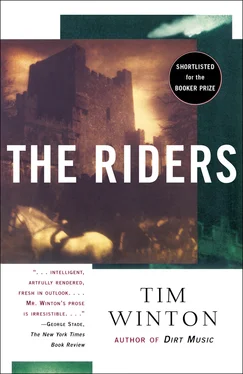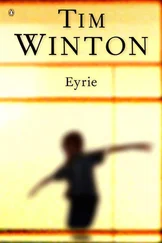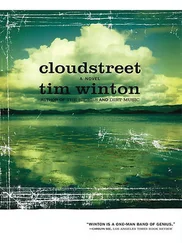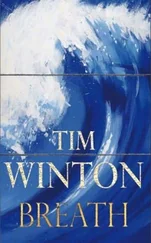Wasted and wounded
It ain’t what the moon did
I got what I paid for now
See you tomorrow
Hey Frank can I borrow
A couple of bucks from you
To go
Waltzing Matilda
Waltzing Matilda
You’ll go waltzing Matilda with me. .
Tom Waits, ‘Tom Traubert’s Blues’
On Raglan Road on an autumn day
I saw her first and knew
That her dark hair would weave a snare
That I may one day rue. .
‘Raglan Road’ (traditional)
WITH THE NORTH WIND hard at his back, Scully stood in the doorway and sniffed. The cold breeze charged into the house, finding every recess and shadowy hollow. It rattled boards upstairs and lifted scabs of paint from the walls to come back full in his face smelling of mildew, turf, soot, birdshit, Worcestershire sauce and the sealed-up scent of the dead and forgotten. He scraped his muddy boots on the flagstones and closed the door behind him. The sudden noise caused an explosion in the chimney as jackdaws fled their fortress of twigs in the fireplace. His heart racing, he listened to them batter skyward, out into the failing day, and when they were gone he lit a match and set it amongst the debris. In a moment fire roared like a mob in the hearth and gave off a sudden, shifting light. The walls were green-streaked, the beams overhead swathed in webs and the floor swimming with trash, but he was comforted by the new sound and light in the place, something present besides his own breathing.
He simply stood there firestruck like the farmboy of his youth, watching the flames consume half-fossilized leaves and twigs and cones. There in the blaze he saw the huge burns of memory, the windrows of uprooted karris whose sparks went up like flares for days on end over the new cleared land. The walls here were a-dance now, and chunks of burning soot tumbled out onto the hearthstone. Scully jigged about, kicking them back, lightheaded with the stench and the thought of the new life coming to him.
The chimney shuddered, it sucked and heaved and the rubbish in the house began to steam. Scully ran outside and saw his new home spouting flame at the black afternoon sky, its chimney a torch above the sodden valley where his bellow of happiness rang halfway to the mountains. It really was his. Theirs.
• • •
IT WAS A SMALL HOUSE, simple as a child’s drawing and older than his own nation. Two rooms upstairs, two down. Classic vernacular, like a model from the old textbooks. It stood alone on the bare scalp of a hill called the Leap. Two hundred yards below it, separated by a stand of ash trees and a hedged lane was the remains of a gothic castle, a tower house and fallen wings that stood monolithic above the valley with its farms and soaklands. From where Scully stood, beneath his crackling chimney, he could see the whole way across to the Slieve Bloom Mountains at whose feet the valley and its patchwork of farms lay like a twisted shawl. Wherever you looked in that direction you saw mountains beyond and castle in the corner of your eye. The valley squeezed between them; things, colours, creatures slipped by in their shadow, and behind, behind the Leap there was only the lowest of skies.
He wasted no time. In what remained of the brief northern day he must seal the place against the weather, so he began by puttying up loose windowpanes and cutting a few jerry-built replacements out of ply. He dragged his tools and supplies in from the old Transit van and set a fallen door on two crates to serve as a workbench. He brought in a steel bucket and a bag of cement, some rough timber, a few cans of nails and screws and boxes of jumbled crap he’d dragged halfway round Europe. By the fire he stood a skillet and an iron pot, and on the bench beside some half-shagged paperbacks he dropped his cardboard box of groceries. All the luggage he left in the van. It was a leaky old banger but it was drier and cleaner than the house.
He lined up his battered power tools along the seeping wall nearest the fire and shrugged. Even the damp had damp. The cottage had not so much as a power point or light socket. He resigned himself to it and found a trowel, mixed up a slurry of cement in his steel bucket, stood his aluminium ladder against the front wall and climbed up onto the roof to caulk cracked slates while the rain held off and the light lasted. From up there he saw the whole valley again: the falling castle, the soaks and bogs, the pastures and barley fields in the grid of hawthorn hedges and drystone walls all the way up to the mountains. His hands had softened these past weeks. He felt the lime biting into the cracks in his fingers and he couldn’t help but sing, his excitement was so full, so he launched rather badly into the only Irish song he knew.
There was a wild Colonial boy,
Jack Dougan was his name…
He bawled it out across the muddy field, improvising shamelessly through verses he didn’t know, and the tension of the long drive slowly left him and he had the automatic work of his hands to soothe him until the only light was from the distant farmhouses and the only sound the carping of dogs.
By torchlight he washed himself at the small well beside the barn and went inside to boil some potatoes. He heaped the fire with pulpy timber and the few bits of dry turf he found, and hung his pot from the crane above it. Then he lit three cheap candles and stood them on a sill. He straightened a moment before the fire, feeling the day come down hard on him. It was sealed now. It was a start.
He put one boot up on a swampy pile of the Irish Times and saw beside his instep:
BOG MAN IN CHESHIRE
Peat cutters in Cheshire yesterday unearthed the body of a man believed to have been preserved in a bog for centuries…
Scully shifted his foot and the paper came apart like compost.
It was warm inside now, but it would take days of fires to dry the place out, and even then the creeping damp would return. Strange to own a house older than your own nation. Strange to even bother, really, he thought. Nothing so weird as a man in love.
Now the piles of refuse were really steaming and the stink was terrible, so with the shovel and rake, and with his bare hands, he dragged rotten coats and serge trousers, felt hats, boots, flannel shirts, squelching blankets, bottles, bicycle wheels, dead rats and curling mass cards outside to the back of the barn. He swept and scraped and humped fresh loads out to the pile behind the knobbly wall. The norther was up again and it swirled about in the dark, calling in the nooks of the barn. Stumbling in the gloom he went to the van for some turps, doused the whole reeking pile and took out his matches. But the wind blew and no match would light, and the longer he took the more he thought about it and the less he liked the idea of torching the belongings of a dead man right off the mark like this. He had it all outside now. The rest could wait till morning.
Somewhere down in the valley, cattle moaned in their sheds. He smelled the smoke of his homefire and the earthy steam of boiling spuds. He saw the outline of his place beneath the low sky. At the well he washed his numb hands a second time and went indoors.
When the spuds were done he pulled a ruined cane chair up to the hearth and ate them chopped with butter and slabs of soda bread. He opened a bottle of Guinness and kicked off his boots. Five-thirty and it was black out there and had been the better part of an hour. What a hemisphere. What a day. In twenty-eight hours he’d seen his wife and daughter off at Heathrow, bought the old banger from two Euro-hippies at Waterloo Station, retrieved his tools and all their stored luggage from a mate’s place in North London and hit the road for the West Coast feeling like a stunned mullet. England was still choked with debris and torn trees from the storms and the place seemed mad with cops and soldiers. He had no radio and hadn’t seen a paper. Enniskillen, people said, eleven dead and sixty injured in an IRA cock-up. Every transfer was choked, every copper wanted to see your stuff. The ferry across the Irish Sea, the roads out of Rosslare, the drive across Ireland. The world was reeling, or perhaps it was just him, surprised and tired at the lawyer’s place in Roscrea, in his first Irish supermarket and off-licence. People talked of Enniskillen, of Wall Street, of weather sent from hell, and he plunged on drunk with fatigue and information. There had to be a limit to what you could absorb, he thought. And now he was still at last, inside, with his life back to lock-up stage.
Читать дальше












